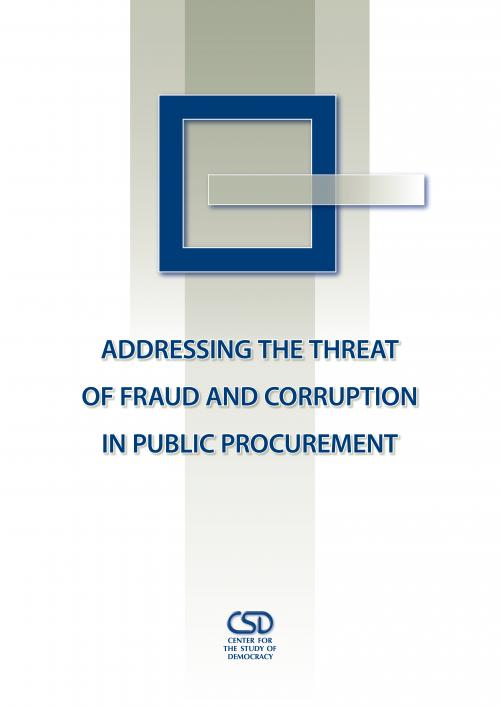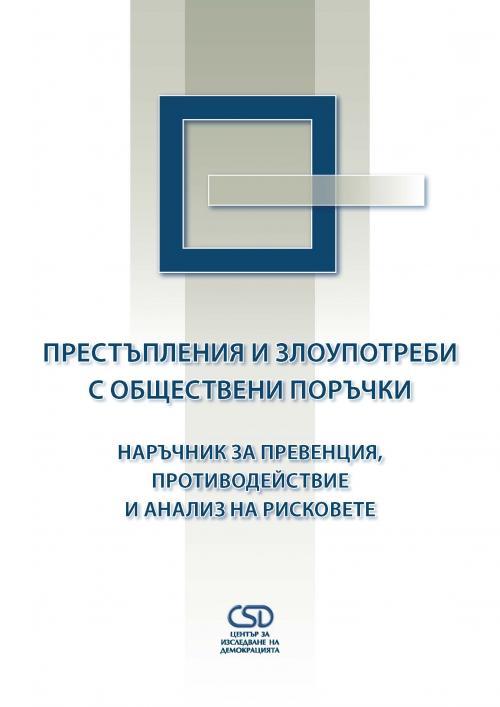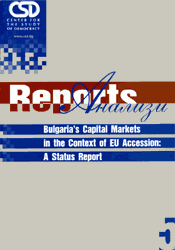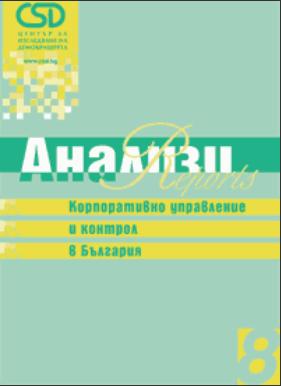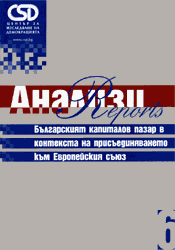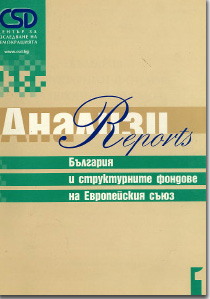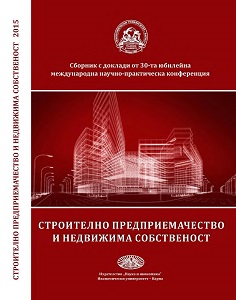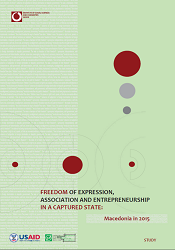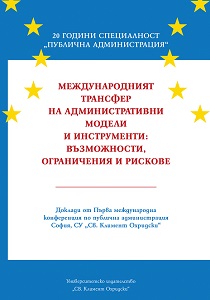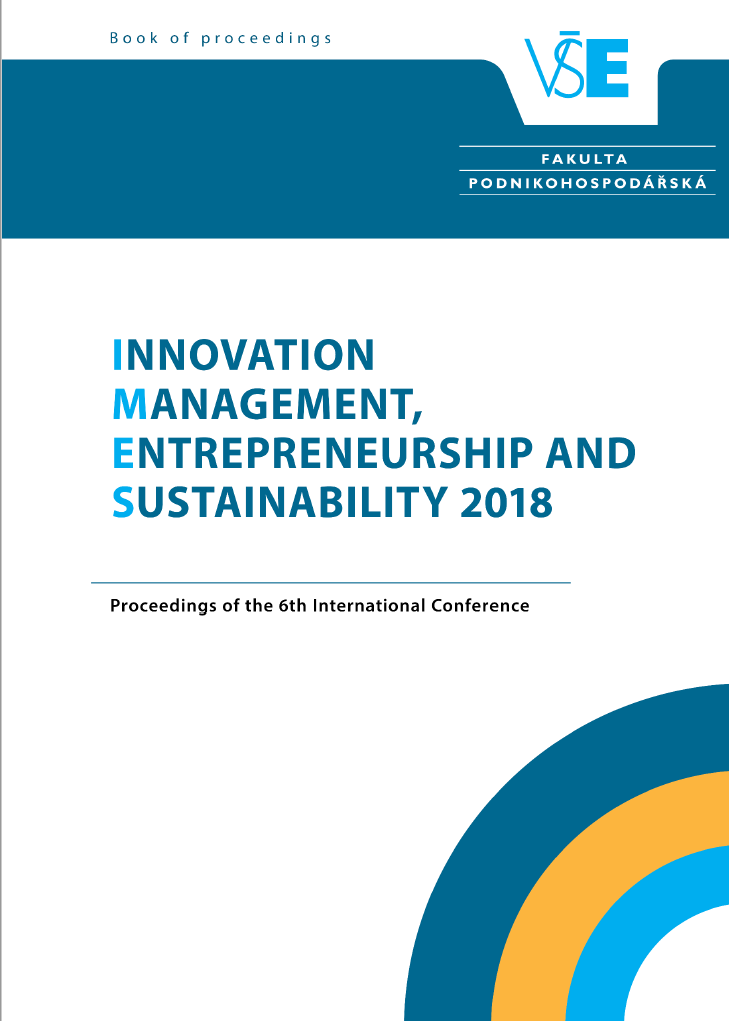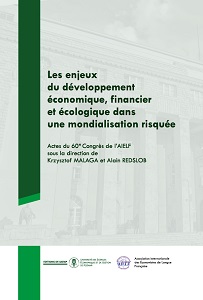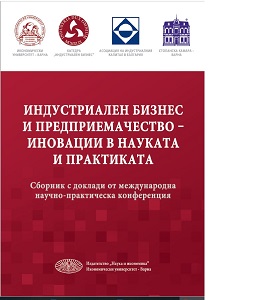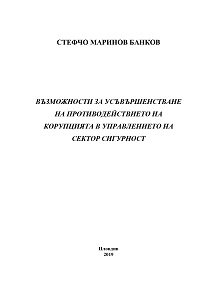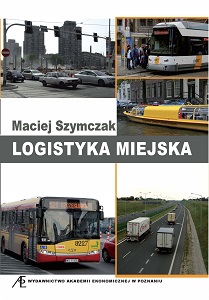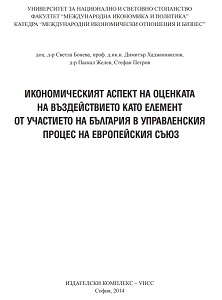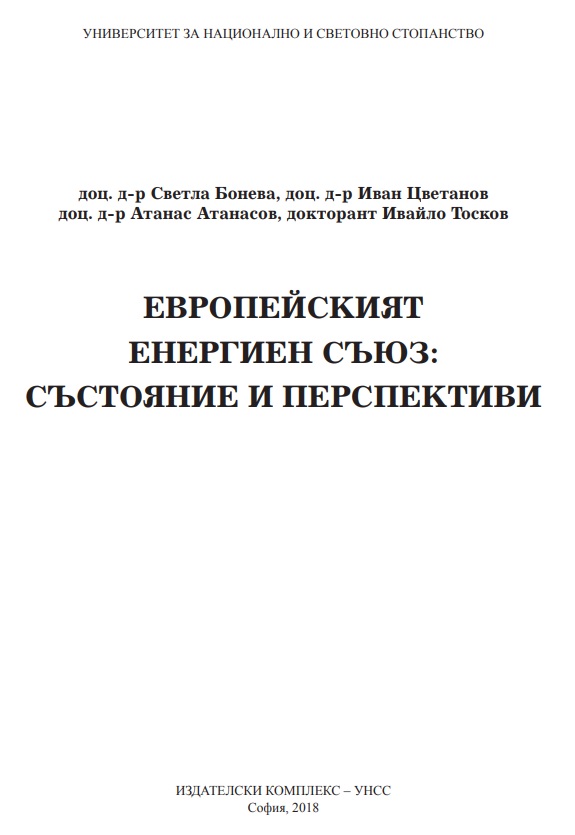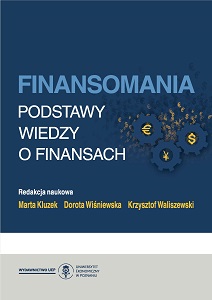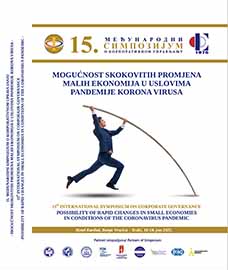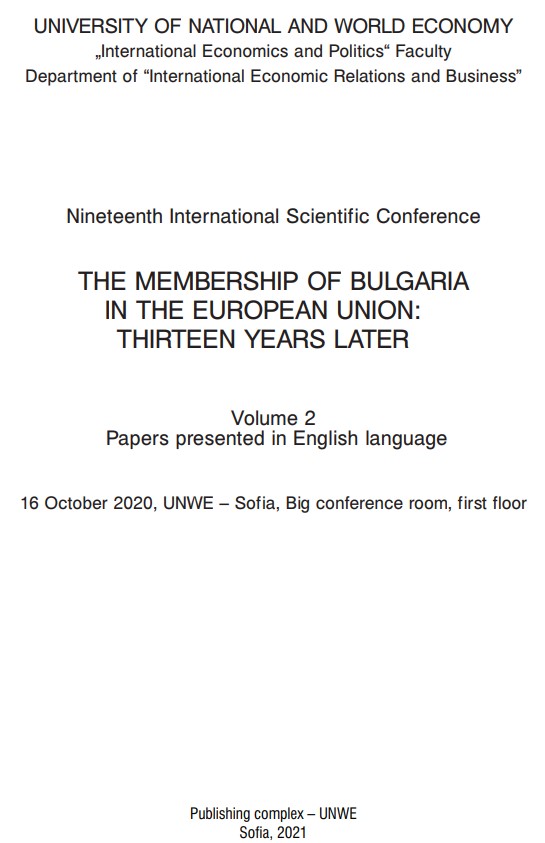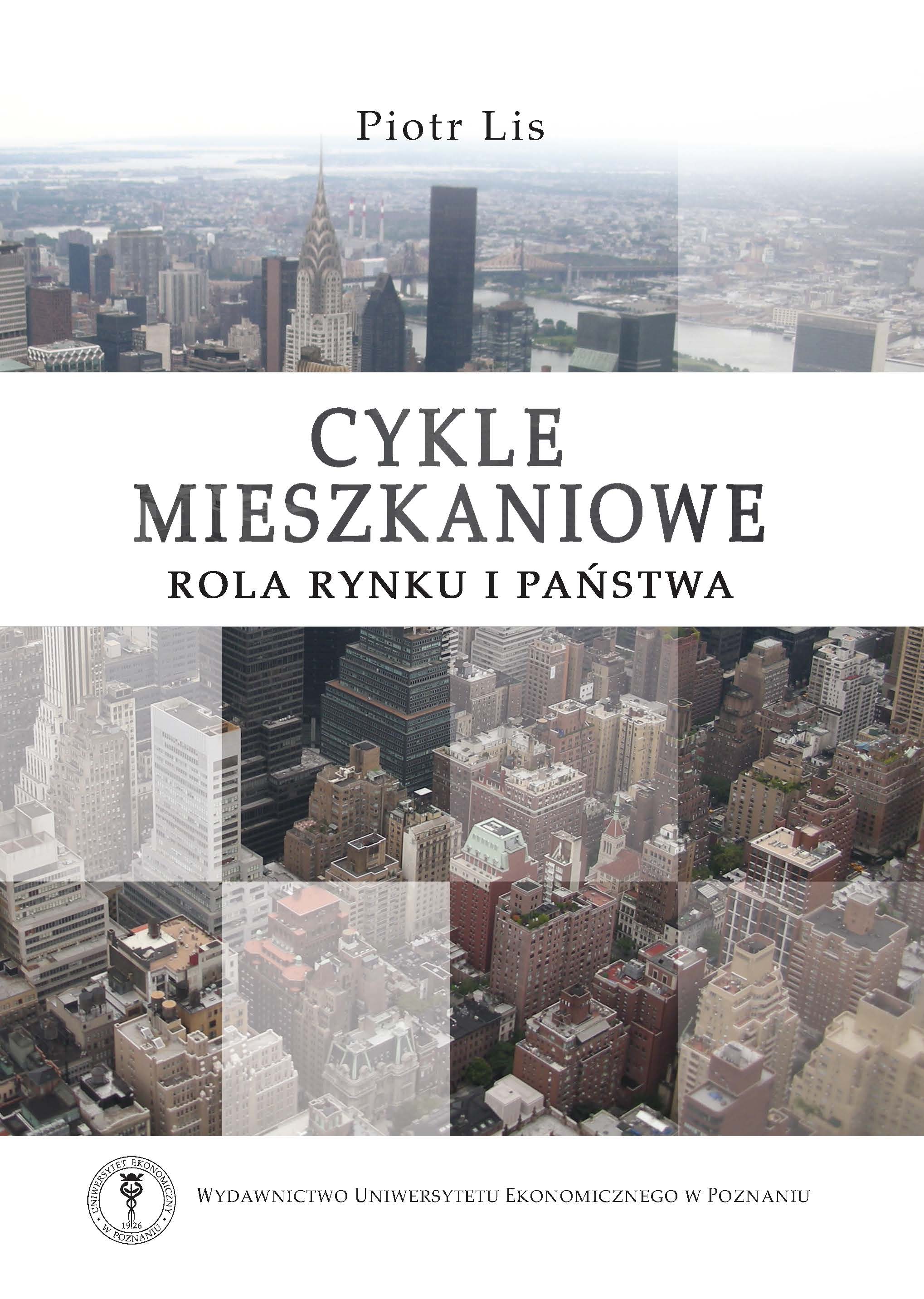Author(s): Aleksandar Marinov,Georgi Peev,Mariana Dimitrova,Milena Stefanova,Snežana Ilieva,Yana Chakarova,Todor Tanev,Fabrice Larat,Andrei Velchev,Atanas Slavov,Elena Kalfova,Kliment Naydenov,Metodi Ivanov,Vladyslav Akulov-Muratov,Boril Mechkov,Petia Branzova,Simeon Petrov,Tatiana Tomova,Jaroslav Dvorak,Gabrielė Burbulytė – Tsiskarishvili,Edita Stumbraitė-Vilkišienė,Liudmila Guzikova,Lyubimka Andreeva,Georgi Vuldjev,Georgy Ganev,Georgy Sarakostov,Nikolai Valkanov,Ognian Boyukliev,Stoyan Panchev,Krassen Stanchev,Maria Kotseva-Tikova,Milkana Mochurova,Venko Petkov,Galina Stoyanova,Georgi Temelkov,Detelin Dimitrov,Iskra Mileva,Liliya Elenkova,Mariela Yordanova,Nikoleta Efremova,Petya Krasteva,Todor Izhbehov / Language(s): English,Bulgarian
What thoughts the following theme does evoke – “International transfer of administrative models and instruments: opportunities, constraints and risks?” It became an object of “love at first sight” for me immediately after it was proposed as a unifying “crown” of the international scientific conference on the occasion of the 20th anniversary of Sofia University’s Department of Public Administration. What broader content could be set which nevertheless presupposes most specific definitions? What more dynamic context might exist which in fact supports the opposite of dynamics – the sustainability of administrative models resistant to pressures for change? What other topic bundles better tradition and reform of administrative systems? First and foremost, it is the host of the conference – the jubilee Department of Public Administration at Sofia University – that is a living example of the international transfer of theories and trends in the field of administrative science. This small scientific community had to meet all challenges of that transfer during its formative years. On the one hand it was pressed to accept the changing political trends in Western societies by theorizing the administrative models backed by them as a manifestation of progressiveness. On the other hand, the need to create an explanation and prescription for his own Bulgarian administrative practice as a manifestation of elementary adequacy it has always existed. The conclusion from the distance of the past 20 years is that these two lines were combined continuously and successfully. If the themes of international forums on public administration in the 90s of the 20th century are considered it will become clear that the separation of administration from politics was the prevailing problem. This sturdy preference was supported by the use of the authority of classic authors such as Max Weber or Woodrow Wilson. It seemed that the emancipation of administrative science was thus achieved once forever. It happened so that the Department of Public Administration got separated structurally and thematically from other disciplines in Sofia University exactly during the same moment. Similar matching of global trends with local developments within the field of administrative science in few other universities paralleled Sofia University’s Department of PA emancipation from Political Science. As a result, Bulgarian versions of the ideal of what is “civil service” started being sought for with skeptical optimism. Should the administration in the democratic future of the country, however, follow imported Victorian models of “civil service”, or, on the contrary, more creative and proactive participation in decision making should be hammered out? The answer to this dilemma followed quite soon. The tempestuous liberal development in the West considered an objective by the Bulgarian leaders changed the emphasis in administrative science. It was not enough to Theorizing the functional distinction between politics and administration per se became insufficient. It was a matter of good scientific tone to find ways and reasons to minimize government intervention in sector management and place the latter as a new unprecedented major task of public administration. The development of a Bulgarian version of apolitical governance through public policies designed and managed by special networks formed ad hoc by citizens and economic operators became the main task of administrative science in the first years of the 21st century. It was in this way that the original thematic field of administration expanded in Bulgaria by inclusion of research on issues of public policy. The emerging soon after concept of “Good Governance” in the Western world undermined confidence in the traditional rational “Management by Objectives”. The period of initial harmonization of Bulgaria with the European directives in the first years after the country as an EU member somehow naturally draw the attention of our researchers to lists of desirable qualities called “good governance” created by international banks and global organizations. Quite naturally, observing the transitive setting that determined the entry of the good governance principles in the Bulgarian administrative practice made our researchers for the first time be attentive to the problems that the direct import of standard projects for good governance in the country could create. For example, the National Ombudsman institution led by Mr. Ginyo Ganev developed a concise Bulgarian conceptual framework for good governance with the help of the Department of PA at Sofia. It started being applied actively with an increasing success to diverse cases in the focus of attention of this institution. Developments in this regard expanded as much as the creation of an entirely Bulgarian concept of a new human “right of good governance”. The Department of PA consulted and developed strategic projects of the Council of Ministers in the bosom of “good governance” and public policy. The original purely theoretical interest in global paradigms in the field of economic management such as “quality management” and “total quality management” gradually evolved into an interest for their practical application in the Bulgarian administrative practice. As it is in countries with developed democracy over the last decade, it is looked for project appraisals, impact assessment of policies, etc. in context of quality management in Bulgaria as well. It is in this way that certain doubts emerged for the first time. First, how possible is it to successfully transfer, adapt and develop economic theories in the socio-political field without losing their basic sense? Second, if the quality management in the public sphere is examined, how is the object to be tested to be defined? What does quality of public governance mean? What are the legitimate criteria for it to be funded, adopted, and maintained? Until this moment versions of Western administrative mindset penetrating via European directives and other vehicles of influence were intensively developed. However, Bulgaria’s own development from this moment on started imposing a brand new round of research. The past decade uncorked the bottle with the spirit of administrative reforms. A whole arsenal of new problems: what is reform, what is change, what is direction, what is progress and so on was added to the issues already accumulated by the transfer of ideas and best practices considered as “best”. A genuine Bulgarian view on issues of local administrative reforms started getting formed by separate members of Sofia University’s scientific community more and more boldly. What has never been done so far in sufficient size, however, is the development of the old theme of sustainable development from a national perspective. It was left in the hands of political bureaucracy and I hope that it is not abandoned there by our researchers. Sustainable development does not only look like but is generally an issue of key importance. It amalgamates the political, administrative, economic and social problems. The pressure for direct application of practices arising from the so-called “Global sustainable development goals” became tumultuous form of formal accountability. The parameters of the polar sets resistance-development, global-local, political-administrative, etc. remain unclear. Thus the meanders of the development of Bulgarian administrative science that followed up to this moment gradually the sequence of changes in the same area in the world for its own reasons found at last the main problem hidden all the time. This problem is: what are the opportunities, limitations and risks of international transfers of administrative models and instruments? However, this is the theme of the conference. In other words, the wall separating political and administrative management is already raised – administrative decisions today are taken in agreement with the so called social partners, NGOs, networks, etc. Various formulas of good governance, in particular lawfulness, transparency, etc., are applied since long ago be it in one degree or another. Management in the public sphere is fragmented by sector policies and hence by separate projects driven by networking teams. The quality of management activities is measured although only by the proportion between the invested funds and tasks performed such as numbers of training pf administrators, etc. Why is the widespread opinion then that the administration is not working well despite all the good intentions with which people work behind the counters of state and local institutions? I think the key answer is modernization, not modernity. Modernization is a continuous process of an existing human community with a will of life. In contrast, modernity is a condition that those inferior according to someone's perspective should or should not, may or may not adopt. Modernization is moving forward in the name of preserving the general essence intact. Conversely, the movement toward modernity is changing the nature of those perceived as non-modern whereby however no one guarantees either the meaning or the consequences, or even the opportunity that this could happen. What are the ultimate objectives of administrative science keeping modernization in mind if this really is the most general question? Modernization implies preserving the identity of the human community under changing circumstances. Why identity must be maintained is another question that is absurd per se, least according Kant’s Categorical imperative. Without “subjectivity”, at least according to Hegel’s philosophy (why not according to classical economic and legal theory), it no action is possible at all, including actions for “improving the situation.” Values separate at least as much as they unite. Could Eastern European societies follow some winning value model at the beginning of the political changes? Was it only their totalitarian political past that made them different from foreign models? The Anglo-Saxon model of governance is based on the culture of urban individualism. The culture of successful Asian “dragons” is based on collectivist Confucian rationalism. Seen at this background, the Western model based on Roman law is offering rational norms. Although somewhat differing one from the other, Eastern European societies, including Bulgarian, proved to be different from all that. In an effort to get modernized once again they had to make hard choices for their future. The triple eclecticism between Eastern European value system, the successful Asian “developmental dictatorship” and the victorious superindividualistic urban West was even more impossible. However, it turns out that the Western and Eastern universe have defended themselves for centuries by modernization cast in strictly defined areas and volumes sufficient only to maintain their own development model. It seems that the task of the Bulgarian administration and administrative science after 20 years of establishment is no more and no less the same. So, the international scientific conference on the occasion of the 20th anniversary of the foundation of the Sofia University’s Public Administration Department turns out to be something like a membrane separating past from future development. The transition from the former to the latter is a clarification of how possible and how necessary the international transfer of administrative models and instruments is.
More...
